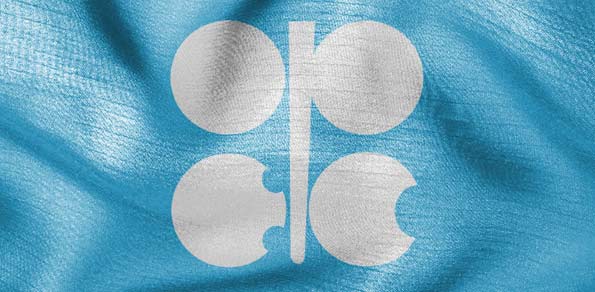Organization of Petroleum Exporting Countries (OPEC) oil output rose in March to its highest since October 2008 as higher supply from Iraq and further recovery in Libya’s production offset a drop in shipments from Iran.
Supply from the 12 members of the OPEC averaged 31.26 million barrels per day (bpd), up from 31.16 million bpd in February, a survey of sources at oil companies, OPEC officials and analysts found, according to a Reuter’s survey on Friday.
The survey found that exports from Iran are falling as some buyers stop or scale back purchases because of sanctions. Concern about Iranian supply has helped drive a 15 percent rally in oil prices this year to $123 a barrel.
OPEC is pumping far more than its official production target of 30 million bpd but oil prices have rallied and inventories have not increased. For some, that indicates demand may be stronger than expected. According to an analyst at BNP Paribas:
[quote]OPEC has been consecutively increasing production over the recent months and yet this has failed to translate in a material rise of OECD inventories from their five-year lows. This suggests to us that the market is not fundamentally developing a surplus.[/quote]
In March, the biggest increase in OPEC supply once again came from Libya, where output continues to recover after being virtually shut down during the 2011 uprising against Muammar Gaddafi’s rule.
Iraq provided the second-largest boost as exports rebounded after weather-related disruptions in February and as a new Gulf shipping outlet provided a long-awaited boost to capacity.
Despite fewer barrels from Iran, March’s total is OPEC’s highest since October 2008, shortly before the group agreed to a series of supply curbs to combat recession, based on Reuter’s surveys.
With oil production surpassing all previous levels, demand falling due to high prices and reduced economic growth, there should be no justification for today’s oil price. The recent report, serves as support for the Obama Administration to release oil from the strategic reserves forcing the price downward. Last week Obama, Cameron and Sarkozy along with representative of the International Energy Administration prepared for a possible release.
There are rumors that the release might happen towards the end of the week as markets close for the Easter holidays, investors and speculators are worried that the release could happen over the holidays. This might cause investors to start positioning themselves before the holiday weekend, pushing down prices.





